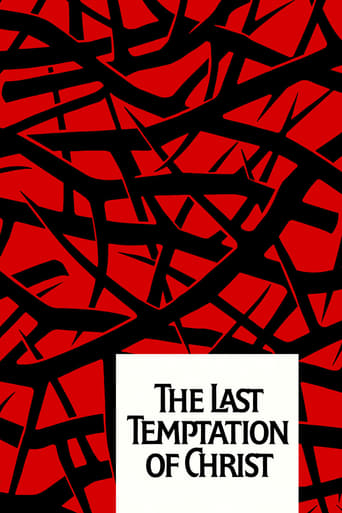"The Last Temptation of Christ," released in 1988 and produced by Universal Pictures and Cineplex-Odeon Films, is a cinematic exploration of the human side of Jesus Christ. Directed by Martin Scorsese and based on Nikos Kazantzakis's novel, the film delves into the internal struggles and temptations faced by Jesus, portrayed by Willem Dafoe. Unlike traditional portrayals, this film presents a Jesus who grapples with doubt, fear, and the very human desire for a normal life, making it a controversial yet thought-provoking piece of cinema. The narrative follows Jesus as he wrestles with his divine mission and the overwhelming burden it places upon him. His journey is marked by moments of profound introspection and encounters with key figures such as Mary Magdalene (Barbara Hershey) and Judas Iscariot (Harvey Keitel). The film's bold approach to depicting these relationships, particularly the imagined life Jesus envisions with Mary Magdalene, sparked significant controversy upon its release. Critics and religious groups debated its theological implications, yet many praised its artistic merit and the depth it brought to the character of Jesus. Scorsese's direction is both visually and emotionally compelling, using stark imagery and a haunting score to enhance the film's introspective tone. The Last Temptation of Christ challenges viewers to consider the humanity of a figure often depicted solely in divine terms. By focusing on Jesus's internal conflicts and the temptations he faces, the film offers a unique perspective on the nature of faith and sacrifice. This approach not only humanizes Jesus but also invites audiences to reflect on their own struggles with belief and purpose. Despite the initial backlash, "The Last Temptation of Christ" has endured as a significant work in the realm of religious cinema. Its exploration of the duality of Jesus's nature—both human and divine—continues to resonate with viewers, prompting discussions about the complexities of faith and the personal cost of spiritual conviction. The film's legacy lies in its courage to portray a deeply personal and often controversial interpretation of one of history's most iconic figures, making it a timeless piece of cinematic art.
Year1988
Budget7000000$
Runtime164 min
Revenue33773585$
GenresDrama
Production countriesUnited States of AmericaCanada

